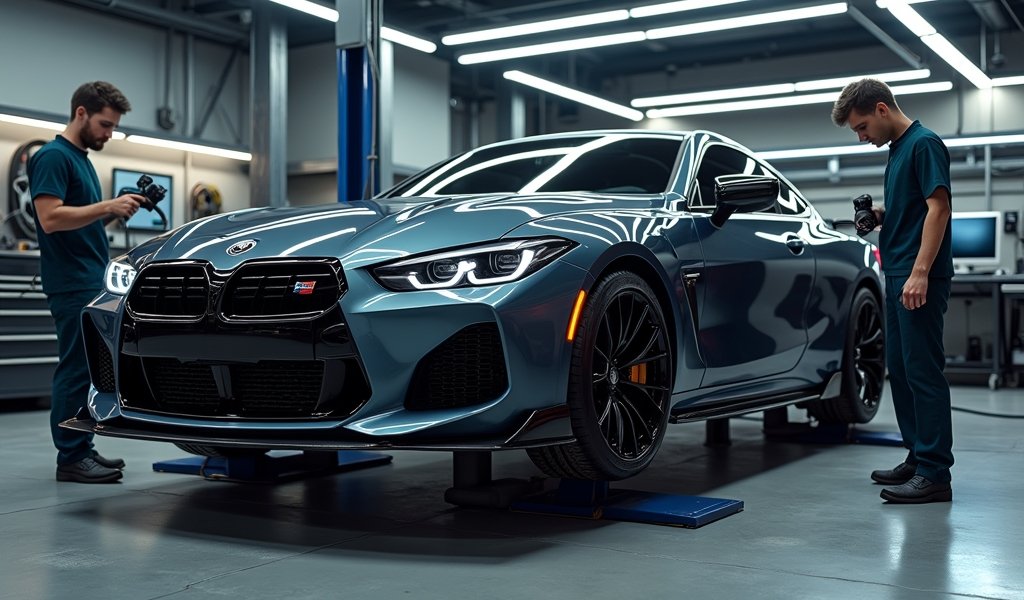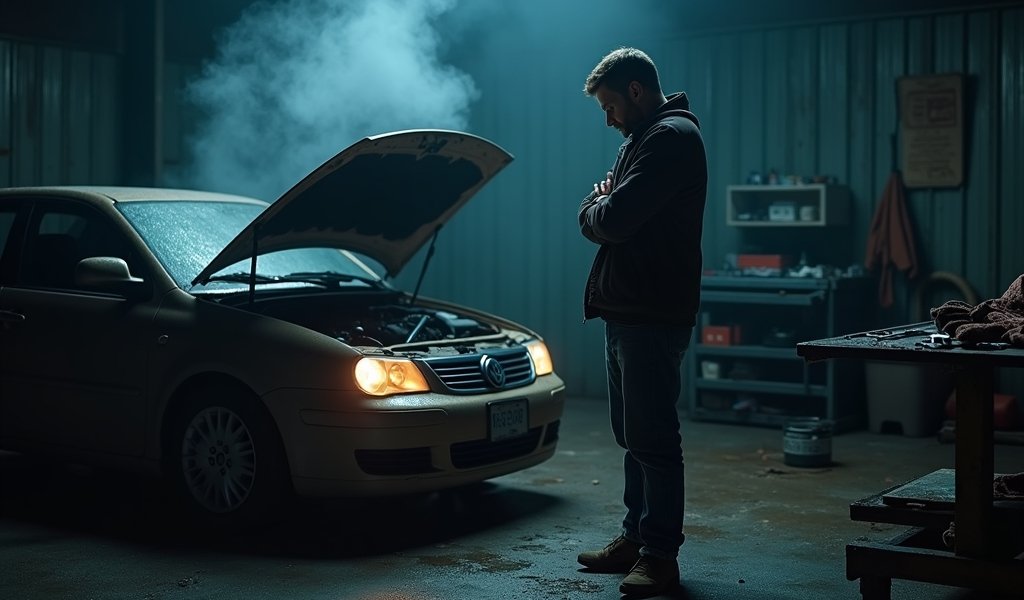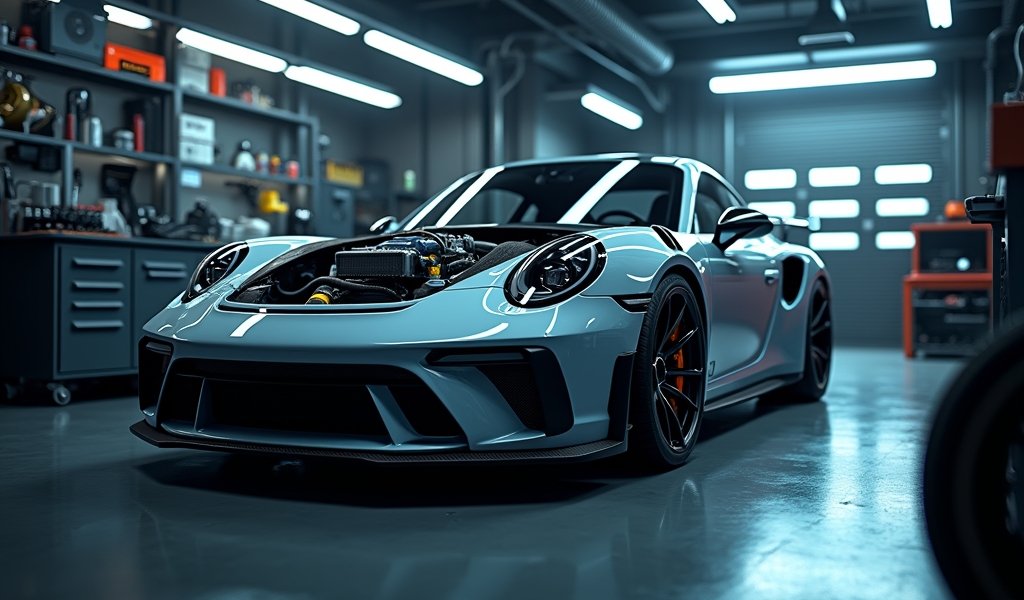Overview
This article breaks down car tuning costs across performance upgrades ($300-$20,000+), aesthetic modifications ($500-$15,000+), and audio enhancements ($200-$3,000+), while highlighting the importance of strategic planning and professional installation. The author emphasizes that successful car tuning requires establishing clear goals, budgeting realistically, and considering hidden costs like increased insurance premiums and maintenance requirements.
Table of Contents
- Understanding Car Tuning: What You’re Getting Into
- Performance Tuning Costs: Engine Upgrades & More
- Aesthetic Tuning Costs: Looking the Part
- Audio System Tuning: Sound Upgrades
- Budget-Friendly Tips for Car Tuning
- Hidden Costs You Should Know About
- Return on Investment: Is Tuning Worth It?
- Conclusion
- Frequently Asked Questions
Understanding Car Tuning: What You’re Getting Into
Car tuning has evolved from a niche hobby into a mainstream passion for automotive enthusiasts like you and me. I’ve been working on cars for over 15 years, and I can tell you that tuning your ride isn’t just about making it faster—it’s about creating something uniquely yours.
When clients ask me how much does car tuning cost, I always tell them the same thing: it depends on your goals. Are you looking for more horsepower, a head-turning appearance, or an audio system that’ll rattle your neighbor’s windows? Each path comes with its own price tag.
Car tuning generally falls into three main categories:
- Performance tuning (engine mods, suspension upgrades, brake improvements)
- Aesthetic tuning (body kits, paint jobs, interior overhauls)
- Audio tuning (speakers, subwoofers, amplifiers)
Your vehicle’s make and model significantly impact costs. Popular platforms like Honda Civics or Ford Mustangs typically have more affordable aftermarket parts compared to luxury or exotic vehicles. This is something I’ve seen consistently when handling regular car service work alongside tuning projects.
The choice between DIY and professional installation also affects your bottom line. While doing it yourself can save on labor, I’ve seen too many botched jobs come through my shop that end up costing more to fix than if they’d been professionally installed from the start.

Performance Tuning Costs: Engine Upgrades & More
ECU/Chip Tuning: $300-$1,500
ECU tuning is one of my favorite recommendations for clients looking for the best bang-for-buck performance upgrade. By reprogramming your vehicle’s computer, we can optimize fuel delivery and timing parameters for noticeable gains.
- Basic ECU flash: $300-$600
- Custom dyno tuning: $600-$1,500
- Plug-and-play performance chips: $350-$800
In my shop, I always recommend custom dyno tuning for serious enthusiasts. The results are worth the extra investment, and I’ve seen cars gain 15-20% more power with proper tuning alone.
Engine Modifications: $500-$10,000+
Engine upgrades vary widely in complexity and cost. Here’s what you can expect:
- Cold air intake systems: $200-$600
- Performance exhaust systems: $500-$2,500
- Intercoolers: $500-$1,500
- Turbocharger or supercharger kits: $3,000-$10,000+
- Internal engine rebuilds: $5,000-$20,000+
Start with the basics—intake, exhaust, and tuning—before moving to forced induction. These initial mods complement each other and provide a solid foundation. I’ve seen too many customers jump straight to turbo kits without addressing the supporting systems first.
A study by MotorTrend found that proper engine modifications can increase horsepower by up to 40% when done correctly, making this investment worthwhile for performance enthusiasts.
Suspension and Brake Upgrades: $500-$5,000
Power is nothing without control. Here’s what suspension and brake upgrades typically cost:
- Performance springs and shocks: $500-$1,500
- Coilover suspension kits: $800-$3,500
- Performance brake pads and rotors: $300-$1,000
- Complete big brake kits: $1,500-$5,000
If you’re on a tight budget, quality springs paired with good shocks offer the best value. I’ve helped many customers transform their handling with just these basic upgrades as part of affordable auto service packages.
Transmission and Drivetrain: $1,000-$7,000
Often overlooked, these upgrades ensure your power gets to the ground effectively:
- Short-throw shifter kits: $200-$500
- Performance clutch kits: $500-$1,500
- Limited-slip differentials: $1,000-$2,000
- Complete transmission upgrades: $2,500-$7,000
A good clutch and lightweight flywheel combination makes a noticeable difference in acceleration. I recommend these upgrades especially if you’ve increased engine power beyond stock levels.
Aesthetic Tuning Costs: Looking the Part
Body Modifications: $500-$5,000+
Aesthetic tuning turns heads and makes your car stand out. Here’s what you might spend:
- Front lip spoilers: $100-$500
- Rear spoilers or wings: $150-$1,000
- Side skirts: $200-$800
- Complete body kits: $1,000-$5,000+
- Wide-body conversions: $3,000-$15,000+
Quality fitment is crucial with body modifications. I’ve seen gorgeous cars ruined by poorly fitting body kits. Always factor in professional installation and paint matching for the best results.
Paint and Wraps: $1,000-$10,000
Nothing transforms a car faster than a color change:
- Partial vehicle wrap: $1,000-$3,000
- Full vehicle wrap: $2,500-$6,000
- Basic respray: $1,500-$5,000
- Premium custom paint job: $5,000-$10,000+
Vinyl wraps offer a reversible, cost-effective alternative to paint. They’ve come a long way in quality, and I now recommend them to many of my clients who want a temporary change or protective layer over their factory paint.
Interior Upgrades: $200-$5,000+
Don’t forget where you spend most of your time—inside the car:
- Steering wheel replacement: $200-$800
- Custom shift knobs: $50-$300
- Racing seats: $300-$2,000 per seat
- Complete interior reupholstery: $2,000-$5,000+
- Dashboard modifications: $500-$3,000
A quality steering wheel and shift knob upgrade offers the best value for interior mods. You touch these components every time you drive, so the improvement in feel is immediate and noticeable.
Wheel and Tire Packages: $1,200-$8,000
Nothing transforms a car’s stance like a proper wheel and tire package:
- Entry-level aftermarket wheels: $600-$1,200 (set of four)
- Premium forged wheels: $2,000-$6,000 (set of four)
- Performance tires: $600-$1,500 (set of four)
- Custom wheel finishes: Add $500-$1,000
Wheels and tires aren’t just about looks—they dramatically affect handling and performance. I always encourage clients to invest in quality wheels rather than going for the cheapest option that might bend or crack under stress.
Audio System Tuning: Sound Upgrades
Head Unit Replacement: $200-$2,000
The brain of your audio system determines what features you’ll enjoy:
- Basic touchscreen head unit: $200-$500
- Premium navigation systems: $700-$2,000
- Integration with factory features: Add $100-$500
Modern head units with Apple CarPlay and Android Auto offer excellent value. I’ve installed hundreds of these units, and the improvement in usability and sound quality makes them worth every penny.
Speaker Upgrades: $200-$1,500
Factory speakers rarely do justice to your music:
- Component speaker sets: $200-$800
- Premium speaker packages: $800-$1,500
- Installation: $100-$500
Component speakers with separate tweeters and woofers deliver dramatically better sound staging and clarity. Even budget-friendly options from reputable brands can transform your listening experience.
Subwoofer and Amplifier Installation: $500-$3,000
For those who want to feel their music:
- Entry-level subwoofer and amp combo: $300-$800
- Premium subwoofer setups: $1,000-$3,000
- Custom enclosures: Add $200-$1,000
A proper subwoofer installation requires careful planning for power requirements and space constraints. Many first-timers underestimate the importance of maintaining their car’s electrical system, which becomes even more critical with power-hungry audio upgrades.

Budget-Friendly Tips for Car Tuning
Prioritize Modifications Based on Goals
After working with hundreds of car enthusiasts, I’ve found that establishing clear objectives is crucial before starting any tuning journey. Are you building a weekend track car? A show vehicle? Or enhancing your daily driver?
For performance enthusiasts, I recommend starting with modifications that provide the best power-to-dollar ratio. Begin with intake, exhaust, and ECU tuning before moving to more expensive upgrades. This approach ensures you see meaningful improvements at each stage.
Plan Upgrades in Stages
Modifying a car in planned phases spreads the financial burden while allowing you to appreciate each improvement individually. Create a roadmap of modifications with budget allocations for each stage.
This approach also gives you time to research each component thoroughly. I’ve saved countless clients from costly mistakes by encouraging them to plan methodically rather than impulse-buying parts.
DIY vs. Professional Installation
While DIY installation can save money, you must honestly assess your mechanical abilities. Simple modifications like air filters or shift knobs are generally safe DIY projects. However, complex tasks involving electrical systems or critical components like brakes should typically be left to professionals.
According to Hemmings Motor News, improper installation is responsible for nearly 65% of aftermarket part failures—a statistic that reinforces why quality installation matters.
Smart Shopping Tips
- Purchase parts during seasonal sales (Black Friday, end-of-year clearances)
- Join enthusiast forums for group buys and discounts
- Compare labor rates from different shops but beware of prices that seem too good to be true
- Consider slightly used parts from reputable sellers for significant savings
- Build relationships with local tuning shops for potential loyalty discounts
I’ve seen customers save up to 40% by timing their purchases strategically and doing thorough research. Patience truly pays off when it comes to car modification.
Hidden Costs You Should Know About
Insurance Implications
Most insurance providers require disclosure of vehicle modifications, which can increase your premiums. High-performance modifications typically have the largest impact on rates, while aesthetic changes generally have minimal effect.
I always advise clients to contact their insurance provider before making significant modifications. Some specialized insurers offer policies specifically designed for modified vehicles that can provide better coverage at reasonable rates.
Maintenance Requirements
Modified vehicles often require more frequent and specialized maintenance. Performance upgrades might necessitate premium fuels, more frequent oil changes, or specialized fluids.
Budget for an increase of 20-30% in regular maintenance costs for moderately modified vehicles. Many tuning enthusiasts overlook this aspect when planning their builds, only to be surprised by higher operating costs later.
Warranty Considerations
Modifications can impact manufacturer warranties, especially if they’re deemed responsible for a component failure. The Magnuson-Moss Warranty Act provides some protection, but proving that a modification didn’t cause a failure can be challenging.
Consider aftermarket warranties specifically designed for modified vehicles if warranty coverage is important to you. These specialized policies can provide peace of mind for enthusiasts with heavily modified cars.
Fuel Efficiency Changes
Performance modifications often reduce fuel economy. While minor upgrades might have negligible effects, significant power increases can reduce efficiency by 10-30%.
This doesn’t mean you should avoid performance upgrades, but you should calculate this additional cost into your long-term ownership expenses. Many of my clients find the trade-off worthwhile for the increased driving enjoyment.
Return on Investment: Is Tuning Worth It?
Modifications That Hold Value
Some modifications retain value better than others. Generally, high-quality, brand-name components installed by reputable shops hold value best. These include:
- Recognized brand suspension systems
- Forged wheels from premium manufacturers
- Professional ECU tunes from established companies
- Reversible modifications with retained stock parts
I always encourage clients to keep their original parts when upgrading. This preserves the option to return the vehicle to stock condition, which can be valuable when selling to certain buyers.
Resale Considerations
Heavily modified vehicles appeal to a narrower market, potentially making them harder to sell. However, tastefully modified vehicles with quality parts and professional installation can sometimes command a premium among enthusiasts seeking that specific build.
The best approach for maintaining resale value is keeping modifications tasteful, using quality components, having professional installation, and maintaining thorough documentation of all work performed.
Performance Gains vs. Cost Analysis
When evaluating performance modifications, consider the cost per horsepower gained. Entry-level modifications like intakes and tunes typically offer the best return, often achieving gains for $100-200 per horsepower.
More extensive modifications like forced induction systems might cost $500-1,000 per horsepower gained. While these more complex upgrades are less cost-effective on paper, they often transform the driving experience in ways that simple bolt-ons cannot match.
Conclusion
Car tuning costs can vary dramatically based on your goals, from under $1,000 for basic modifications to well over $50,000 for comprehensive builds. The key to successful tuning is establishing a realistic budget based on your goals and spreading modifications over time in a logical progression.
As someone who’s been in the trenches working on modified cars for years, I can tell you that the most satisfying builds aren’t necessarily the most expensive ones. They’re the ones that perfectly match their owners’ vision and driving style.
Research thoroughly, consult with professionals, and connect with other enthusiasts who have modified similar vehicles. Quality parts and proper installation are always worth the investment—cutting corners inevitably leads to disappointment and additional expenses.
Whether you’re looking to add a few simple mods to your daily driver or building a full-blown show car, approaching the process with knowledge and patience will help you achieve the best results for your budget. Remember, car tuning is a journey—enjoy the ride!
Frequently Asked Questions
What’s the cheapest way to increase my car’s performance?
An ECU tune is typically the most cost-effective performance upgrade, offering 10-15% power gains for $300-600. Pair it with a cold air intake for the best budget-friendly results.
Do car modifications void my warranty?
Modifications can potentially void parts of your warranty if they’re deemed responsible for a component failure. The manufacturer must prove the modification caused the issue to deny a warranty claim.
Are aesthetic modifications worth the money?
Aesthetic modifications rarely return their investment in terms of resale value but can provide significant personal enjoyment. Focus on quality installations that enhance rather than detract from your vehicle’s design.
How much should I budget for a basic tuning project?
For a well-rounded basic tuning project, budget $2,000-3,000 for a combination of minor performance and aesthetic upgrades. This typically covers intake, exhaust, ECU tune, and perhaps wheels or suspension components.
Can I tune my car myself to save money?
Simple modifications like air filters or cosmetic upgrades can be DIY projects if you have basic mechanical knowledge. However, complex performance modifications require specialized tools and expertise that make professional installation more cost-effective long-term.


Pingback: car suspension upgrades for performance! - knowsyourcar.com
Pingback: Cold Air Intake Dyno Results: 5% Gains - knowsyourcar.com
Pingback: ECU Remapping Software: 5 Essential Tips - knowsyourcar.com